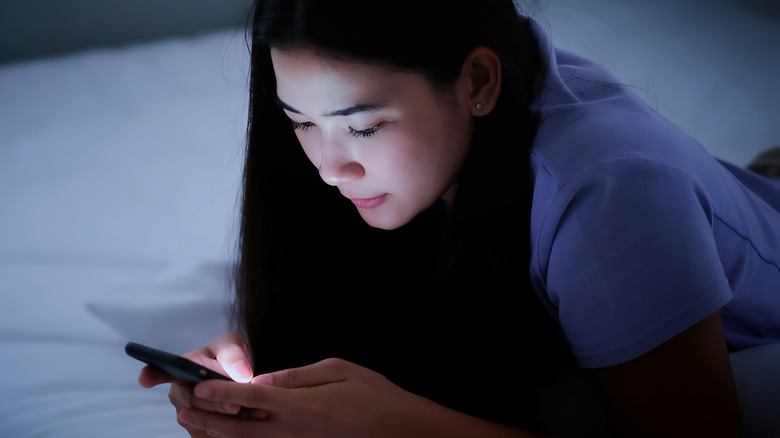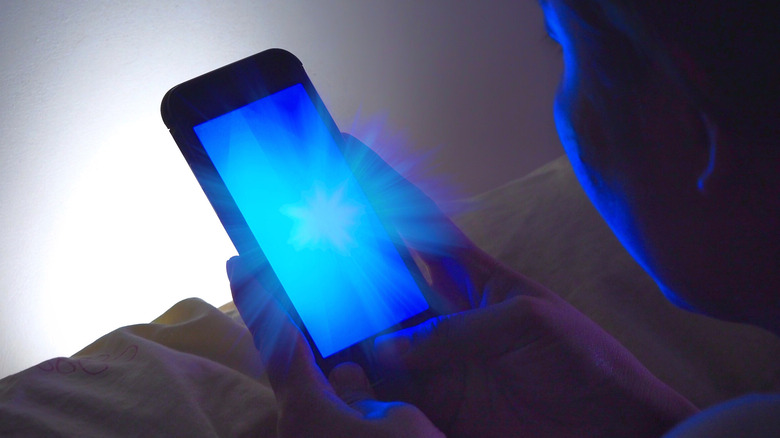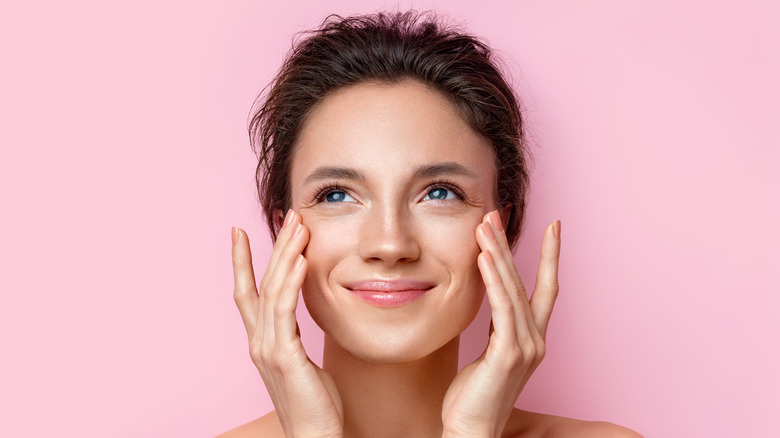Is Blue Light Bad For Your Skin?
You may already know that blue light is emitted from your smartphone screen and that this blue light can cause issues with eye strain in addition to impacting your sleep health. In the skincare community, blue light has yet another potential danger: causing damage to your skin. The practice of blue light blocking has become trendy for this very reason. Blue light is part of the visible light spectrum for humans, and the sun itself emits blue light.
Though it is most commonly associated with gadgets, the amount of blue light coming from smartphones is very minor compared to the levels in sunlight. Does blue light pose any real danger to your skin? There have been a minimal number of studies that point to "yes," but not enough research has been done yet to say so for sure. In this case, you may be wondering what exactly blue light is and how it can potentially affect your health. Here's what we know.
What is blue light and its dangers?
Blue light is a wavelength of light that organically comes from the sun, but it can be recreated with electronic devices. Light from smartphone screens includes blue light, making it possible for humans to be exposed to this light during all hours of the day, not just when the sun is up. Blue light helps boost mood and energy levels, which is why it's beneficial for us that it's in sunlight, as explained by Harvard.
However, when we get blue light exposure at night, this can cause issues. Since this type of light makes our brains more active, it can cause sleep disturbances and mess with your circadian rhythm and your natural sleep-wake cycle. This is because blue light activates areas that make us feel stimulated, and this blocks the production of melatonin, the chemical released at night by our brains to make us feel sleepy, as noted by the Sleep Foundation. The more this happens over time, the more likely it is to interact with your circadian rhythm and propel you into overall unhealthy sleep cycles.
Does blue light damage skin?
Sleep health alone is enough of a reason to avoid over-exposure to blue light, especially at night. But does this wavelength have any additional effect on the skin that is exposed to it? A 2015 study from the German university hospital Charité – Universitätsmedizin Berlin reported a link between blue light on the skin and an increase in free radicals in the body, which is known to cause the effects of aging in the skin to occur more quickly. Another study from 2020 found that long-term exposure to blue light can cause more DNA damage as well as cell and tissue death, though it notes that blue light can also have beneficial effects on the skin in some cases.
Another point to think about is that a lack of sleep is known to cause a multitude of skin problems, as noted by Sleep.org. Links have been found between people who report poor sleep and a higher amount of acne. Stress caused by sleep deprivation can have a negative effect on your immune system, as well, making you more prone to skin problems. Though the jury is still out on how substantially blue light may directly affect your skin, the evidence indicates that it certainly may have a negative indirect impact.


